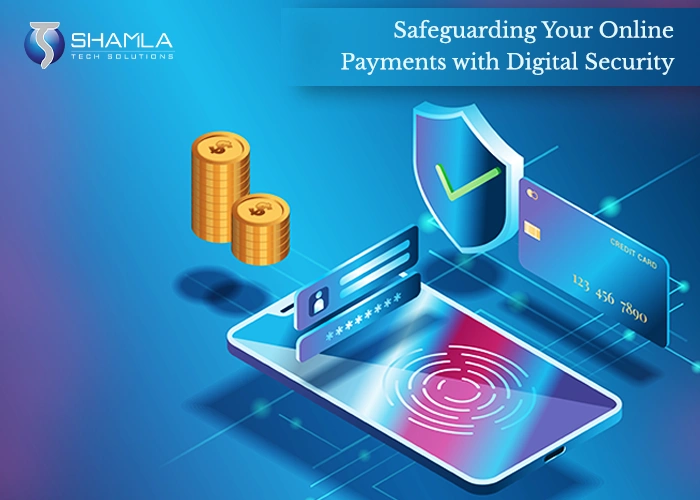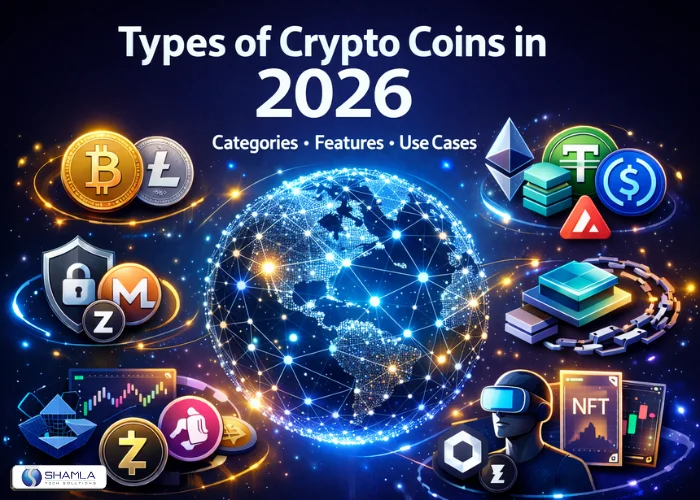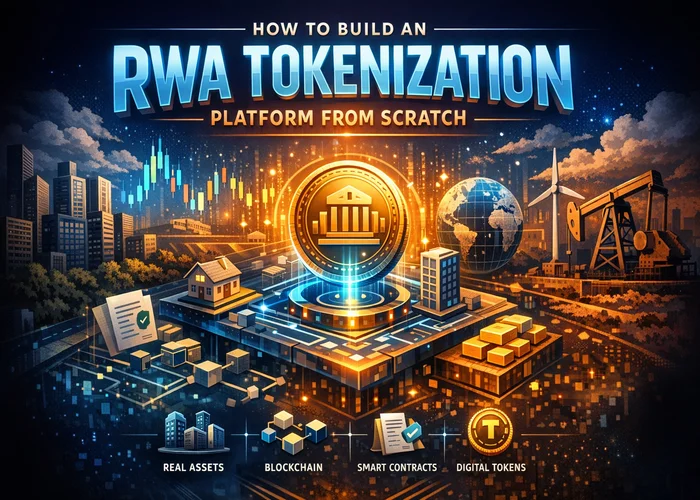The digital economy has completely changed how we conduct transactions with our money. A few years ago, we all thought that online payment transactions were too risky and most of us viewed it as super futuristic. Making your payments in just a few taps using your mobile felt like magic, didn’t it? But now, we have adopted online payments in literally everything that we buy for our lives. So, why do we opt for online payments rather than the traditional way of handling money? We all know the answer for this, the transactions that are done online are super fast, easy and convenient for both consumers and businesses alike.
With ease of access on rise, cybercriminals pop up to steal our money too. These cybercriminals are getting smarter day by day. By stealing our sensitive info like our credit card numbers and bank account details, they could get access to our accounts and make our money disappear before you even know it.
To combat this, many technologies have been put in place. Tokenization is one such tech which is used for secure online payments. Tokenization in payments works in a simple way by replacing your sensitive info with a unique token that can’t be traced back to original data. This means that, even if those cunning hackers get their hands on our sensitive info, they are left with nothing useful in their hands. We’ll get to know how tokenization for online payments works and why it is gaining so much attention in the finance industry.
What is Tokenization?
Tokenization is a kind of data security technique which works by replacing sensitive data or information with a unique token, through which the process gets its name. This particular token created has no value on its own and this stands as a stand-in for the original data which was tokenized. The actual sensitive data or info will be stored safely and securely in a tokenization vault, which will be separate from the transactional systems. By doing so, tokenization makes sure that the tokens can’t be used for any fraud or to access any private data.
Even if tokenization and standard encryption both are designed for the same exact purpose, which is to protect sensitive information, they operate completely different. In encryption, data is being scrambled into unreadable formats with algorithms in place, but if the hackers reverse it using the right decryption key, this can become a serious threat. Tokenization, on the other side, removes the sensitive data from the systems completely and replaces it with a token that can’t be decrypted using any key because it has no relationship with the data mathematically.
The Mechanics of Tokenization in Digital Payments
Tokenization is indeed a perfect working model for securing payments but it is also a transformative process. Look at the step-by-step process of tokenization, its components and its security standards.
Step-by-Step Process of Tokenization for Online Payments
1. Initiating a Payment Transaction: When a customer initiates their payment, which can be by entering their credit card details or swiping their card using a POS machine, the payment information will first be transmitted to the system of the merchant.
2. Generation of the Token: The merchant system forwards the sensitive payment data to a tokenization service provider. This provider generates a unique token, a randomized string of characters or numbers, to replace the original payment information.
3. Storing the Token in the Merchant’s System: The generated token is returned to the merchant and stored in their system for further processing, such as transaction completion or recurring billing. Crucially, the original payment data is not stored in the merchant’s environment, reducing the risk of breaches.
4. Secure Storage in the Token Vault: The sensitive data, such as the customer’s card number, is stored securely in the tokenization vault, a centralized and highly secure database managed by the service provider. Only this vault can map the token back to the original data when required.
5. Validation for Future Transactions: For subsequent transactions or verification purposes, the token is sent to the tokenization system, which retrieves the corresponding sensitive data from the vault and uses it for processing while ensuring the merchant never handles the original information.
Key Elements of Tokenization
The Token: A token is a randomized and non-sensitive value that has no meaningful relationship to the original data. It serves as a placeholder, ensuring that sensitive information is never exposed during transactions. Tokens are typically single-use or restricted to specific domains, such as a particular merchant or transaction type, for added security.
The Token Vault: The token vault is actually the complete backbone of the whole tokenization system. This vault is where you securely store the sensitive data of the users like cardholder information and create a mapping system to the tokens linked to the data. The vault is amazingly designed with several advanced security features to prevent any kind of unauthorized access.
Mapping Mechanism: The mapping mechanism links tokens to their original data within the token vault. This process occurs in a highly controlled environment, ensuring that sensitive data is only accessed when absolutely necessary, such as during refunds or fraud investigations. The mapping system plays a critical role in ensuring data integrity and transaction accuracy.
PCI DSS for Tokenization in Payment
The Payment Card Industry Data Security Standard (PCI DSS) sets very strict rules to keep the payment card data or information very safe and secure. Tokenization in payments helps businesses to meet the requirements by reducing the risks that are linked to storing sensitive data. This is done by the same process of replacing the card details with tokens, while making sure that the merchants themselves don’t store any sensitive payment information on their own systems. This also means that only few systems are needed to meet PCI DSS standards, making compliance easier in this process.
Tokenization also adds several extra layers of security to the existing system. The sensitive information that is kept in a secure token vault, will follow PCI DSS rules that will limit access to tracking usage and conducting regular security checks. Even if a hacker gains access to a payment system of a business, the stolen tokens are useless to them because they don’t actually contain any real data for them to benefit from.
Benefits of Tokenization in Digital Payments
Enhanced Data Security: Unlike encryption in which the sensitive payment information can be decrypted with the right key put to use, tokenization provides absolute protection to protect the sensitive information by replacing it with unique tokens that are completely meaningless with this specific context. This means that even if those wretched hackers get their hands on the tokens, they can literally do nothing with them. As the real information is being made void in these tokens, they can neither extract sensitive payment information nor do any fraudulent payment activities.
Reduced Fraud Risks: One of the primary goals of tokenization is to prevent misuse of sensitive payment data. Since tokens are unique to each transaction or merchant, they cannot be reused or applied elsewhere. This makes tokenized systems less attractive targets for fraudsters. Let’s say a hacker successfully intercepts tokenized payment data when an online payment occurs, they absolutely won’t be able to use it for any unauthorized purchases, which reduces fraud risks by a lot.
Simplifying Compliance with Regulatory Requirements:Tokenization helps businesses simplify compliance with stringent regulations like the Payment Card Industry Data Security Standard (PCI DSS). By removing sensitive data from their systems, businesses reduce the scope of compliance audits and minimize liability. Tokenization ensures that data protection standards are met without requiring merchants to implement costly and complex security measures.
Seamless Customer Experience: While security is a priority, tokenization also enhances the customer experience. Consumers can make quick, secure transactions without worrying about their data being compromised. Mobile wallets, contactless payments, and subscription services all use tokenization to enable fast, hassle-free payments. By fostering trust in digital payments, tokenization encourages customer loyalty and supports business growth.
Applications of Tokenization in Digital Payments
Tokenization for online payments has a huge number of applications in several different payment platforms across different industries. Here are some of those applications:
1. Online and Mobile Payments
Tokenization has already been implemented widely in online and other mobile payment systems. They are used in mobile wallets like Apple Pay and several ecommerce websites too. When a customer makes their purchase, their credit card or debit card details are being replaced with a unique token. This securing of sensitive information provides an extra layer of security in the payments which makes them safer and more convenient. Many businesses around the world have started to flock in to get their payment systems to be integrated with tokenization. The main reason behind this is the safety and security that this process provides.
2. In-store Transactions Using Near Field Communication (NFC) Technology
Tokenization is also being used in contactless payments too. They make use of the NFC technology to conduct such contactless payments at physical stores. When a customer taps their smartphone or credit card at the payment machine to make a contactless payment, the system will send a token instead of the actual card details. This makes these kinds of transactions quicker, more secure and smooth. Additionally, the token that is being created will be valid for that one transaction alone.
3. Subscription Services and Recurring Billing
Billing and subscription service are simplified with the advent of tokenization. Tokenization for online payments allows businesses to securely store the token for any future payments as well. This will work well when a customer subscribes to any service or membership, their payment details will be tokenized. So, in the future billing cycles, the business or the merchant can use the stored tokens to process the recurring payments without storing any sensitive payment information of the customer.
4. Tokenization in Cryptocurrency
Tokenization is also making huge waves in cryptocurrency. Tokenization in payments, particularly in the creation of super secure digital assets and payments. By tokenizing real world assets such as real estate, art or even currencies, blockchain platforms can offer much more secure, transparent and efficient transactions using tokenization. Tokenization in cryptocurrency makes sure that any ownership and the transaction records are being conducted in an immutable and secure way.
Tokenization Standards and Compliance for Digital Payments
Global Tokenization Standards
As tokenization for online payments is being widely used now, a lot of global standards have been developed to guide the right usage of tokenization in payments. The Payment Card Industry Data Security Standard (PCI DSS) provides clear specific requirements for the tokenization providers and businesses to make sure that the payment information of customers is being handled in a secure manner. PCI DSS mandates that the tokenization that will be implemented should be in a certain way that makes sure that all sensitive data is being replaced with non-sensitive tokens. Other standards, such as ISO/IEC 27001 for information security management, also apply to all the tokenization systems, which focus on safeguarding data throughout its lifecycle.
Compliance with GDPR and All Other Regulations
Tokenization in payments also plays a key role in ensuring compliance with various data protection regulations as well. The General Data Protection Regulation (GDPR), which governs the protection of personal data within the European Union, requires all organizations who use online payments to minimize data exposure and improve privacy. Tokenization helps meet these demands of governing bodies by providing services that no personal data is being stored in any unprotected environments. In addition to the GDPR, compliance with PCI DSS is absolutely mandatory for businesses that handle payment card data.
Importance of Selecting Certified Tokenization Solutions
Selecting legit and certified tokenization solutions is essential to make sure that your system complies with all the industry standards and the regulations that have been put in place. Certified tokenization solutions are subject to various security assessments and audits to check if these solutions completely adhere to the best practice methods that have been established. These amazing solutions offer the businesses to protect sensitive payment data and to comply with the regulatory requirements as well. Using certified tokenization solutions also reduces the risk of penalties or data breaches, which can harm a business’s reputation and bottom line.
Future of Tokenization for Online Payments
- Wider Adoption Across Industries: Tokenization for online payments will be adopted at a very rapid pace across all industries. The main industry focus would be retail, finance and healthcare, as businesses in this domain have realized the benefits that this has to offer in protecting the sensitive payment data.
- Enhanced Data Security: As cyber threats are increasing day by day, tokenization will start to become a cornerstone for all secure digital payment systems. They will offer protection by replacing the sensitive data of users and businesses with unexploitable tokens that can’t be matched by any other payment or security system.
- Expansion of Mobile and Contactless Payments: With the integration of the NFC technology into mobile wallets, tokenization will offer us a new secure and frictionless payment interface through smartphone, smartwatches and other wearable smart devices.
- Integration with IoT Ecosystems: Tokenization will play a new and important role in securing payments within the expanding Internet of Things (IoT) coming into play, The transaction will be safeguarded and they will be conducted between connected devices, such as smart appliances and autonomous vehicles.
- Support for Blockchain and Cryptocurrency: Blockchain tech will be integrated with tokenization for online payments and this will amazingly improve transparency, reduce payment risks and make sure all of the transactions that are being conducted are secure.
- Streamlined Regulatory Compliance: Tokenization simplifies compliance with data protection regulations like PCI DSS and GDPR by minimizing the storage of sensitive information, reducing audit costs, and ensuring businesses meet stringent data security standards.
- Future Role in AI-Driven Payments: As artificial intelligence (AI) advances, tokenization will work alongside AI systems for fraud detection, enhancing security measures by identifying suspicious activities in real-time and improving payment authentication methods.
- Subscription Services: As sensitive payment information can be stored as tokens for recurring payments, this marvelous feature can be integrated into the payment systems to enable secure subscription services.
- Increased Customer Trust and Loyalty: By enhancing payment security, tokenization will foster greater consumer confidence, leading to higher satisfaction, increased customer loyalty, and more frequent use of digital payment methods across industries.
- New Business Opportunities: Tokenization for online payments is really spreading like a wildfire that is inextinguishable. Many new opportunities are opening up for businesses who look to adopt this tech into their systems as they can innovate their operation to offer a secure and streamlined payment solution for their customers.
Conclusion
Tokenization for online payments is a technology that is gaining popularity gradually, which is widely adopted to increase the security of the digital payments conducted. The process drastically reduces the risk of fraud, data breaches and identity theft too. This also helps us to protect both businesses and customers at the same time. Tokenization in payment also makes it super easy for companies who comply with all the regulations that are put in place.
For businesses, tokenization reduces the risk of breaches and builds customer trust, leading to greater loyalty. For consumers, it offers peace of mind by keeping payment details safe, making transactions smoother. As digital payments grow, tokenization will play an even bigger role in securing mobile payments, in-store purchases, and new technologies like IoT and blockchain.
If you are a business owner looking to make your payment system secure with tokenization solutions, partner with Shamla Tech today to get solutions that are secure, scalable and in compliance with all the regulations across the world.
Contact us today, to get a free consultation and quote to develop your secure tokenization solution for your business’ online payments!








